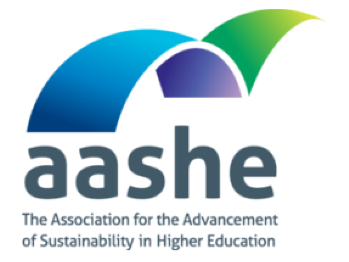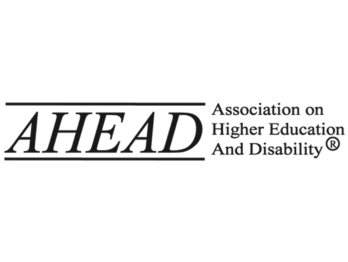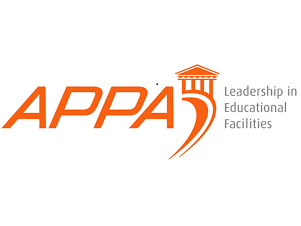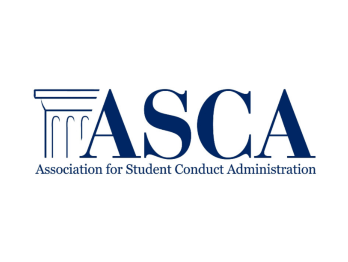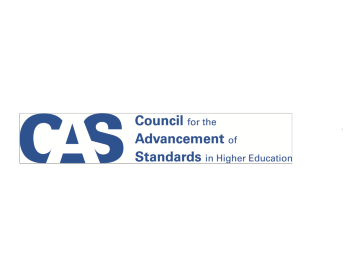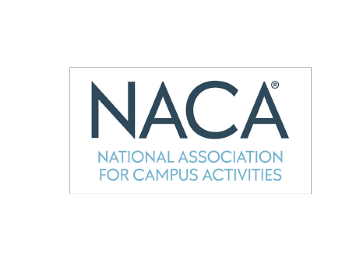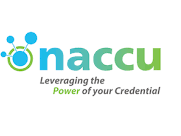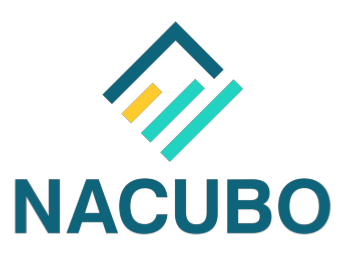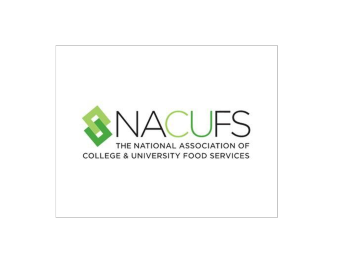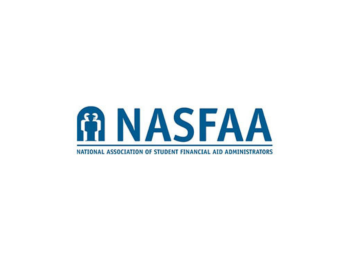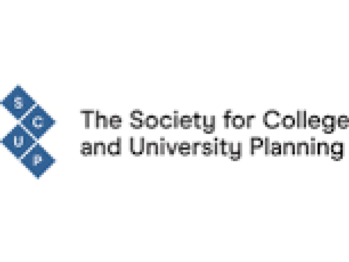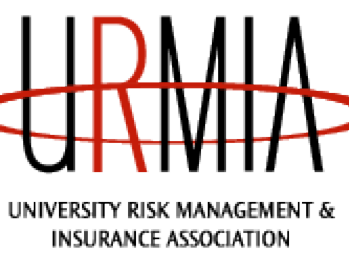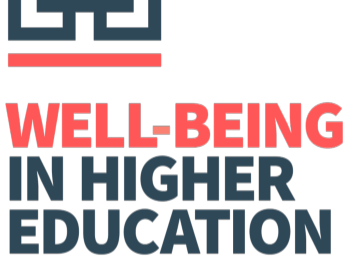
Well-being in Higher Education: Raising Literacy and Advancing the Conversation
Virtual Engagement Events Health, Safety, and Well-being Health, Safety, and Well-being Initiatives Wellness and Health Promotion
February 26 - March 1, 2024 Virtual
“Well-being in Higher Education: Raising Literacy and Advancing the Conversation” is a free, virtual event taking place February 26 - March 1, 2024. Over 20 associations are collaborating with a goal to raise the literacy for well-being among higher education professionals and to advance conversation among colleagues on and across campuses.
Presented By
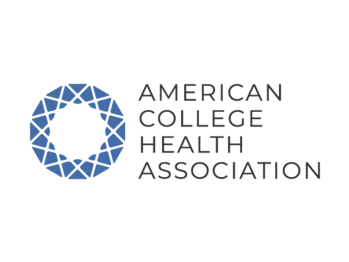
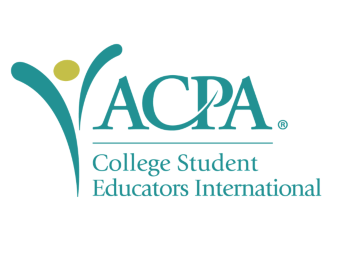
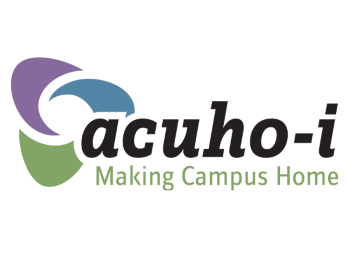
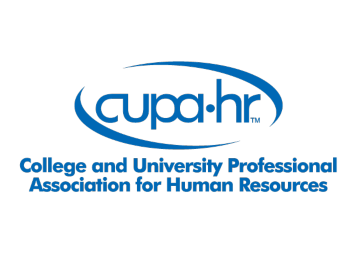
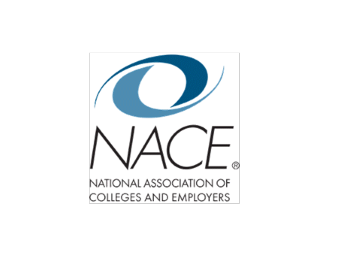
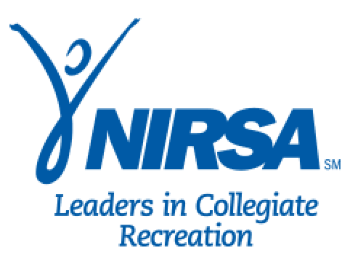
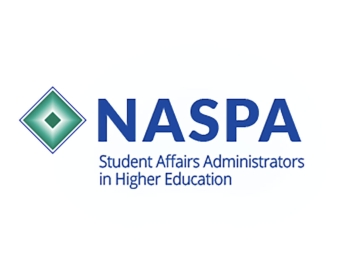
Schedule
Please see the schedule below, sessions will be open to all and may be recorded. All listed schedule items below are tentative and subject to change. All times are EST. To see session information click "Details" in each time block.
February 26
February 27
February 28
February 29
March 1
12:00 PM - 1:30 PM
Opening Keynote
Details
The Caring University: A Roadmap to Reimagining the Higher Education Workplace
Dr. Raphael Florestal-Kevelier
Many colleges and universities continue to experience high turnover, prolonged vacancies, and questions about how to engage employees. Drawing on his in-progress book, Dr. Kevin McClure explores the roots of higher education’s workplace problems, connecting his personal experiences to research on burnout, disengagement, and demoralization. The presentation includes multiple approaches leaders of institutions can pursue to better support the wellbeing of staff and faculty through organization-level changes to structures and cultures.
CSAEd Core (Talent Management)
2:00 PM - 2:50 PM
Breakout 1
Details
Breakout 1 sessions will take place on Monday, February 26 from 2:00 p.m. - 2:50 p.m. ET
|
Using the CAS Standards to Frame Health and Wellbeing Initiatives Presenters: Dan Bureau, CAS Member at Large for Research, Assessment and Publications, and Past President, Assistant Vice President for Student Health and Wellbeing, LSU; Ray Plaza, Director, Office for Diversity and Inclusion, Santa Clara University and CAS Member at Large for Standards; Stacy Andes, Director of Health Promotion, Villanova University and ACHA representative to CAS Presented By: Council for the Advancement of Standards in Higher Education CSAEd Core (Assessment and Evaluation) |
This session will provide an overview of the CAS Standards and how our 50 sets of professional standards all, at least in part, can facilitate services to support student health and wellbeing. The session will focus specifically on how parts of our standards align with the dimensions of wellness. |
|
Trauma-Informed Organizations as Vehicles for Well-being Presenters: Dr. Tricia Shalka, Associate Professor, Higher Education, Warner School of Education and Human Development, University of Rochester Presented By: ACPA–College Student Educators International CSAEd Core (Student Learning, Development, and Success) |
Trauma-informed practice offers the potential for deeply transformative work towards wellbeing as an organizational imperative whose time has come in higher education. In this session, we’ll be drawing on knowledge about trauma and trauma-informed practice to re-envision the potential of our organizations in higher education as not just some places to get things done, but as spaces to practice and enact wellbeing as a central purpose. We will spend some time exploring what trauma is and how it shows up in higher education and then work with several principles of trauma-informed practice that can support those impacted by trauma while simultaneously nurturing cultures of wellbeing in our organizations. |
|
From Access to Assistance: Evolving Student ID Cards for Mental Health Presenters: NIck Mabee, Strategic Communications & Marketing Manager - Parking & Transportation Services | U Card | Contract Administration, University of Minnesota Presented By: NACCU–Leveraging the Power of your Credential CSAEd Core (Student Learning, Development, and Success) |
Discover how the University of Minnesota's U Card Office successfully transformed traditional student ID cards into a tool for well-being. In this webinar, we'll delve into our journey, including why it matters, design elements, resource integration, and implementation strategies. Join us to learn how you can enhance student well-being and your institution's brand image through a more compassionate and supportive campus card approach. |
3:00 PM - 3:50 PM
Breakout 2
Details
Breakout 2 sessions will take place on Monday, February 26 from 3:00 p.m. - 3:50 p.m. ET
|
Strengthening the Intersection of Business Office Practices and Equitable Student Outcomes Presenters: Kelli Rainey, Ed.D., Senior Director, Grants Management, NACUBO; Leslie Jamison, Chief Financial Officer, Atlantic Cape Community College; Carmen Roberts, Executive Director of Operations, Great Falls College - Montana State University Presented By: National Association of College and University Business Officers (NACUBO) CSAEd Core (Financial and Facility Management; Student Learning, Development, and Success) |
Community well-being, as explored in this discussion, extends beyond individual aspirations, encompassing sufficient and equitable opportunities, resources, and conditions. Two distinguished chief business officers will share their experiences and perspectives on how business office practices can contribute to the enhancement of community well-being, with a specific focus on creating a setting that goes beyond the capabilities of any single individual. Drawing from real-world examples, the discussion will illuminate innovative strategies to strengthen the link between their business office practices and equitable student outcomes. From resource allocation to financial policies, attendees will gain actionable insights into how business officers from all parts of the campus can be catalysts for positive change, ensuring that all students have access to the opportunities and resources necessary for their success. |
|
Developing Climate Hope, Antidotes for Climate Anxiety Presenters: Marcus Welker, Sustainability Corps Program Manager, Dartmouth; Rachel Kent, Sustainability Program Assistant, Dartmouth; Jackson Walker, Sustainability Fellow, Dartmouth Presented By: Association for the Advancement of Sustainability in Higher Education |
In this session, we will present the work that we are doing at Dartmouth, provide a framework for developing climate hope, support participants' development of their own climate hope-related programs and communications, and enable collaboration amongst participants to improve their outcomes. |
|
Parenting in Higher Ed: Panel Discussion Presenters: Kyle Burke, Director of University Centers & Student Engagement, University of Wisconsin LaCrosse; Tena Bennett, Assistant Vice Chancellor for Auxiliary Enterprises & Student Affairs, Southern Illinois University Carbondale; Luke Haumesser, Director for Student Leadership & Engagement, University at Buffalo Presented By: Association of College Unions International (ACUI) |
Student Union professionals facing time-management, self-care and other challenges that come along with parenting in a full-time role. Tips, Tricks, Advice and Q&A from new and experienced parents. |
|
From Compliance and the Courts, to Equity Efforts and Public Health – Implementing Title IX As Transformative Change Presenters: Luoluo Hong, PhD, MPH; Vice President for Student Engagement & Well-Being, Georgia Institute of Technology Presented By: NASPA- Student Affairs Administrators in Higher Education CSAEd Core (Student Learning, Development, and Success) |
The facilitator will begin with a case study narrative of work conducted in support of Title IX efforts at one public, comprehensive university. The study will offer specific examples of how the institution made six transformative shifts: (a) from a legal framework to a public health framework; (b) from compliance orientation to equity-minded and social justice orientation; (c) from reactive to proactive; (d) from intervention to prevention; (e) from complaint-driven to incident-responsive; and (f) from individual office responsibility to collective impact framework. The session will pivot to lessons learned for consideration by applicants, including sharing of frameworks that participants can take back to their respective teams on their home campus. The session will end with an interactive Q&A session. |
12:00 PM - 12:50 PM
Breakout 3
Details
Breakout 3 sessions will take place on Tuesday, February 27 from 12:00 p.m. - 12:50 p.m. ET
|
Wellbeing and Mental Health: A Conversation Presenters: Zainab Okolo, Senior Vice President of Policy, Advocacy and Government Relations, JED; Hollie Chessman, Director, Practice and Research, ACE; Joyce DeWitt-Parker, Assistant Vice President for Student Affairs- Health and Well-being, University at Albany, SUNY; Kirk Dougher, Associate Vice Chancellor for Student Support and Wellness, Washington University Presented By: All Participating Associations CSAEd Core (Student Learning, Development, and Success) |
Wellbeing and mental health are frequently used interchangeably—both in higher education and in the broader societal lexicon. How are these two critical concepts different? Where are their synergies? How can campus work support both? |
|
Honing In On Emotional Intelligence Presenters: Heidi Carl, Executive Director of Financial Aid, Purdue University; Art Young, FAAC®, Executive Director, Office of Scholarships and Financial Aid, University of Arizona; Susan Shogren, ICE-CCP, CPTD®, Director of Certification and Credentialing, NASFAA Presented By: The National Association of Student Financial Aid Administrators (NASFAA) |
In this session, Heidi Carl, Art Young, and Susan Shogren explore the importance of emotional intelligence as a professional skill foundational to both individual and community well-being. This panel of experienced financial aid administrators and association leaders will share strategies for effectively relating to people, motivating others, managing difficult situations, and handling interpersonal relationships judiciously and empathetically. Join us for this informative and interactive discussion to learn how to cultivate self-awareness, self-regulation, and social awareness in yourself and others. |
|
Managing Anxiety and Stress in the Workplace Presenters: Cheryl Lloyd, Vice President, Systemwide Human Resources and Chief Human Resources Officer (CHRO), University of California System; Lucy Dominguez, Chief Advisor, Injury Management Organization Presented By: University Risk Management and Insurance Association (URMIA) and College and University Professional Associations for Human Resources (CUPA-HR) |
A comprehensive session on the impact of stress and ways to decrease it from an individual's psychological well‐being, injured employees healing, and leaders influence perspective. We will cover these three positions and how they can both experience and reduce the overall impact of stress and anxiety. Looking at stress and anxiety from this wholistic view can enable an overall improved work environment and healthier life. |
1:00 PM - 1:50 PM
Breakout 4
Details
Breakout 4 sessions will take place on Tuesday, February 27 from 1:00 p.m. - 1:50 p.m. ET
|
An Integrated Approach to Fostering Workplace Well-Being Presenters: Mikel LaPorte, MS, MBA, Senior Manager, Learning & Leadership Development, Human Resources, University of Texas Health San Antonio; Laura Gottlieb, MEd, Senior Leadership Development Consultant, Human Resources, University of Texas Health San Antonio Presented By: College and University Professional Associations for Human Resources (CUPA-HR) CSAEd Core (Talent Management) |
Post-pandemic, many organizations are seeking better strategies to support their employees' mental health and well-being. Join this webinar to learn how UT Health San Antonio is fostering workplace well-being through an integrated awareness, alignment and engagement strategy. You'll learn how to promote a culture of wellness by normalizing conversations about mental health and well-being. |
|
Professional Resiliency Presenters: Brent E. Ericson, Ph.D, Assistant Dean of Students, George Mason University/ASCA; Valerie Glassman, Ed.D., Senior Director for Student Affairs, University of North Carolina School of Medicine/ASCA Presented By: Association for Student Conduct Administration (ASCA) |
This session will explore the concept of professional resiliency to student affairs practice, and demonstrate to participants how resiliency can be used in daily practice. The presenter will begin with a personal narrative of resiliency as context for the session followed by a discussion of trauma. Next, a model of resiliency development will be illustrated as well as the key characteristics of resilient practice and leadership. The session will end with a discussion of positivity as well as key takeaways. The information in this session is based both in personal practice as well as empirical research in the field of higher education. |
|
The Intersection of Mental Health & Nutrition Presenters: Dr. Heather Carrera, DCN, MS, CNS, CDN, Nutrition and Wellness Manager Campus Auxiliary Services, SUNY Geneseo Presented By: The National Association of College & University Food Services (NACUFS) CSAEd Core (Student Learning, Development, and Success) |
Nutrition is increasingly being recognized as a powerful tool in the prevention and treatment of a spectrum of mental health conditions, from anxiety to depression and beyond. Mental health conditions can have a profound effect on students and the workforce, decreasing job performance and productivity, reducing dependability, and lowering energy levels. Improving outcomes on campus can increase community well-being. |
2:00 PM - 2:50 PM
Breakout 5
Details
Breakout 5 sessions will take place on Tuesday, February 27 from 2:00 p.m. - 2:50 p.m. ET
|
Leadership Integrity and Beneficence: Fostering Wellness in Others Presenters: Steve Herndon, Assistant Vice President of Student Living, Syracuse Presented By: Association of College and University Housing Officers - International (ACUHO-I) CSAEd Core (Leadership; Talent Management) |
Join us for an insightful and inspiring virtual program where we will delve into the crucial role of ethical leadership in promoting the well-being of individuals and teams. This engaging session will feature a facilitated discussion by a panel of esteemed industry leaders who have excelled in integrating integrity and beneficence into their leadership styles. |
|
The Leader’s Role in Cultivating Well-Being and Sense of Belonging Presenters: Shawn VanDerziel, President & CEO, National Association of Colleges and Employers; Amber Shaverdi Huston, Executive Director, National Association for Campus Activities & Educational Foundation Presented By: National Association of Colleges and Employers (NACE) and National Association for Campus Activities (NACA) CSAEd Core (Leadership; Talent Management) |
Delve into the experiences and strategies of two leaders in higher education associations as they strive to foster personal well-being and belonging in the workplace. Explore individual and group strategies for stress management, maintaining a healthy work/life equilibrium, and promoting a sense of belonging at work. From personal and professional anecdotes to collective strategies, gain invaluable insights into fostering well-being and inclusivity as an imperative for today’s leaders. Discover how to cultivate supportive norms, practices, and policies within your team, while also championing diversity and recognizing the contributions of every individual. Join us for an enriching discussion that combines personal reflections, practical strategies, and collective insights to support your journey as a current or future leader in higher education. |
3:00 PM - 3:50 PM
Breakout 6
Details
Breakout 6 sessions will take place on Tuesday, February 27 from 3:00 p.m. - 3:50 p.m. ET
|
How to Use Campus-Specific Data to Impact Well-Being Presenters: Nikki Brauer, M.S., Director, Health Promotion and Wellness, Illinois State University; Jordan Perry, MPH, MCHES, Director of Wellness and Prevention Services, Appalachian State University; Mary Hoban, PhD, MCHES, Chief Research Officer, American College Health Association; Susan Hochman, MPH, FACHA, Director, Strategic Initiatives, Healthyhorns, The University of Texas at Austin Presented By: American College Health Association (ACHA) CSAEd Core (Assessment and Evaluation; Student Learning, Development, and Success) |
Well-being survey data is a great place to start your campus well-being work. Join ACHA as we discuss the Healthy Campus Inventory and the newly acquired Well-being Assessment survey tools as well as National College Health Assessment (NCHA) well-being metrics. Learn more about the intended audience for each tool, the key constructs behind the survey instruments and how they are being used by campuses to impact well-being. CME, CHES and MCHES credits are being offered for this session. For more information, please log in or create a free account at the ACHA Education Center at https://education.acha.org/products/how-to-use-campus-specific-data-to-impact-well-being. |
|
Centering Equity in Well-being: Systems approaches to student success for underrepresented student populations Presenters: Lizette Rebolledo, Director, Orientation and Transition Experiences, University of Minnesota Twin Cities; Jesse Douglas Cunion, Assistant Dean for Student Services, College of Arts and Sciences, Cleveland State University; Dr. LaToya Stackhouse, Dean of Students, Gordon State College; Dr. Nanette Vega, Assistant Dean for Diversity, Inclusion, and Community Engagement, University of Miami Presented By: ACPA–College Student Educators International and NODA – Association for Orientation, Transition, and Retention in Higher Education CSAEd Core (Social Justice and Inclusion) |
Join our panel discussion of higher education experts as they delve into the critical link between intentional systems that support underrepresented student populations and the enhancement of overall community well-being. Our hope is that attendees will leave feeling empowered with actionable insights on how to foster a more inclusive, equitable, and supportive environment that promotes student success for all. |
|
Enhancing Student Well-being on Campus by Collaborating with Risk Management Presenters: Eno Oregbesan, Director, Risk Management, Rice University; Agnes Ho, Director, Student Wellbeing, Rice University; Mya Batton, Senior Director, Risk and Insurance Management, Vanderbilt University; Lisa Clapper, Director, Student Care Network and Student Care Coordination, Vanderbilt University Presented By: University Risk Management and Insurance Association (URMIA) CSAEd Core (Crisis and Risk Management; Student Learning, Development, and Success) |
In this presentation, we will explore the role of risk management in supporting student well-being on campus. We will discuss collaborative approaches to risk management and provide suggested strategies to support the creation of a safe and supportive environment for students, helping them thrive academically, emotionally, and socially. Our discussion will center on the role of risk managers in providing: mental health support services, crisis prevention, emergency response and insurance based solutions. Join us to discover how effective risk management isn't just about mitigating hazards but also about nurturing the holistic well-being of our students. |
12:00 PM - 12:50 PM
Breakout 7
Details
Breakout 7 sessions will take place on Wednesday, February 28 from 12:00 p.m. - 12:50 p.m. ET
|
Using the Cross Functional Framework to Create Campus Approaches to Health and Wellbeing Presenters: Stacy Andes, Director of Health Promotion and ACHA representative to CAS, Villanova University; Delynne Wilcox, Student Well-being Data Analyst, University of Alabama; Gina Abrams,Director of Research and Program Evaluation / Associate Professor, International Institute of Restorative Practices Presented By: Council for the Advancement of Standards in Higher Education and American College Health Association (ACHA) CSAEd Core (Assessment and Evaluation; Student Learning, Development, and Success) |
This section focuses on how users can apply the CAS Cross-Functional Framework for Health and Wellbeing, which outlines six different aspects of the infrastructure necessary to frame coordinated programs, in this case, on health and wellbeing. |
|
Systems Change: Wellbeing, Sustainability & Justice Presenters: Erin Patchett, Director, Administration and Assessment, Colorado State University; Mark Ferguson, Assistant Vice President, Well-Being, Ohio University; Sophia Agtarap, Director, Equity, Diversity and Inclusion, Washington State Board for Community and Technical Colleges; Thomas Kelly, Chief Sustainability Officer, University of New Hampshire Presented By: Association for the Advancement of Sustainability in Higher Education (AASHE) and NIRSA: Leaders in Collegiate Recreation CSAEd Core (Student Learning, Development, and Success) |
Wellbeing, sustainability, and justice are all complex challenges that demand systems-level thinking to move the needle towards progress. They are also all areas that frequently sit in separate silos on campus, when they are actually intertwined and necessary to each other’s existence. Our esteemed panelists, each with expertise in one or more of these areas, will explore what it means to engage in the work of complex challenges (as opposed to a simple or complicated challenges), what it means to think systemically, and how to balance the tension between the demand for individually-focused efforts with the more long-term work of systems change. Panelists will aim to bring concrete, real-world examples to these big-picture, and frequently abstract, topics. Join us for this important conversation about thinking differently and how it relates to our everyday work. |
|
Staff Well-being: Its Role In Creating A Healthy Campus Presenters: Marcus Hotaling, Ph.D., Director, Eppler-Wolff Counseling Center, Union College, and President, Association for University and College Counseling Center Directors (AUCCCD), Union College; April Scott, Ph.D., Director, Diversity and Inclusion for Health and Wellbeing, University of Wisconsin-Madison; Susie Olmos-Soto, Senior HR Consultant, Texas Christian University Presented By: College and University Professional Associations for Human Resources (CUPA-HR) and American College Health Association (ACHA) CSAEd Core (Talent Management) |
Do you recognize the pivotal role of staff well-being in cultivating a resilient and thriving campus community? Join this session and learn how to articulate key data points concerning faculty and staff health, identify the dimensions contributing to staff burnout, and compile a comprehensive list of actionable systems changes aimed at fostering a healthier work environment for staff members. Don't miss this opportunity to contribute to the well-being of your campus community! |
1:00 PM - 1:50 PM
Breakout 8
Details
Presidential Fireside Chat
Join NIRSA Executive Director Pam Watts as she chats with Lewis & Clark University President Dr. Robin Holmes-Sullivan about a president’s perspective on wellbeing and how campus departments can unite in this work.
2:00 PM - 2:50 PM
Breakout 9
Details
Breakout 9 sessions will take place on Wednesday, February 28 from 2:00 p.m. - 2:50 p.m. ET
|
How to Foster Campus-Wide Well-being: A Roundtable Discussion Presenters: Antoinette Hargrove Duke, Director, Academic Career Pathways and Partnerships, Tennessee State University; Robbie Melton, Provost, TSU Leadership, Tennessee State University; Wendelyn Inman, Dir Pub Health Prog/ Assoc Pro, Tennessee State University; Sydnee Collins, Assistant Director, Counseling Services, Tennessee State University; Rhonda McNutt, SVP, Program Manager, Bank of America; Chrishonda O’Quinn, Student Representative Executive VP of SGA, Tennessee State University; Derrell Taylor, Student Rep SGA President, TSU Presented By: National Association of Colleges and Employers (NACE) CSAEd Core (Student Learning, Development, and Success) |
Join us for a national panel discussion on fostering campus-wide well-being in higher education hosted by Tennessee State University (TSU). Our diverse panelists, including industry leaders, students, administrators, expert leaders, and faculty, will explore tailoring initiatives, evidence-based practices, and stakeholder roles in advancing well-being. |
|
Creating a Culture of Wellbeing Presenters: Niraj Dangoria, Associate Dean for Facilities, Planning and Management, Stanford University School of Medicine; Julianne Nola, Executive Director of Capital Projects, University of California, Davis; Mitch Fine, Partner, WRNS Studio; Lilian Asperin, Partner, WRNS Studio Presented By: The Society for College and University Planning (SCUP) CSAEd Core (Student Learning, Development, and Success) |
Discover how to help students develop holistic and long-term healthy lifestyles by creating a culture of well-being in a collegiate environment informed by a myriad of social, economic, academic, and personal pressures. |
3:00 PM - 3:50 PM
Breakout 10
Details
Breakout 10 sessions will take place on Wednesday, February 28 from 3:00 p.m. - 3:50 p.m. ET
|
Recreation for Wellbeing: Understanding Wellbeing through NIRSA Engagement Presenters: Josh Downing, M.S., CWP, Associate Director – Programming, Indiana University; Jacob M. Eubank, Ed.D., Assistant Professor, Department of Exercise Sciences and Recreation, Lehman College, CUNY Presented By: NIRSA: Leaders in Collegiate Recreation CSAEd Core (Student Learning, Development, and Success) |
What does it mean for campus recreation to be thought of as an entry point for students’ wellbeing journey on our collective campuses? In this session, two NIRSA Health and Wellbeing Task Force members will share foundational elements, current and future work of the task force, and highlight how the inter-association definition of well-being framework can be applied to campus recreation. |
| Health Promoting Universities: The Basics
Presenters: Chris Dawe, Assistant Vice President for Student Affairs-Health and Well-Being, University of Houston; Rebecca Kennedy, PhD, Assistant Vice President for Student Health & Wellbeing, University of Alabama at Birmingham; Sislena Ledbetter, Associate Vice President, Counseling Health, Wellbeing, Western Washington University Presented By: NASPA- Student Affairs Administrators in Higher Education CSAEd Core (Student Learning, Development, and Success) |
This session provides an overview of the Okanagan Charter and its key principles for action set forth by the International Health Promoting University and Colleges Network and supported by the US Health Promoting Campus Network. Participants will learn the basic elements of what it means to be a health promoting university and how to work toward a whole campus, settings and systems approach to promote wellbeing in person, place and planet. |
12:00 PM - 12:50 PM
Breakout 11
Details
Breakout 11 sessions will take place on Thursday, February 29 from 12:00 p.m. - 12:50 p.m. ET
|
Strategies for Safeguarding Your Mental Health and Professional Practice as a Conduct Administrator Presenters: Valerie Glassman, Ed.D., Senior Director for Student Affairs, University of North Carolina School of Medicine/ASCA; Brent E. Ericson, Ph.D, Assistant Dean of Students, George Mason University/ASCA Presented By: Association for Student Conduct Administration (ASCA) |
The landscape of traditional student conduct practice is one that is highly legalistic and adversarial in nature, despite our shared mission of educational and developmental outcomes. And because the majority of student conduct administrators do not have formal legal training, the nature of our work can lead to exhaustion, burnout, and even trauma. This workshop, grounded in evidence from the literature and emerging research, will offer practitioners specific strategies in addressing student conduct work that supports wellness in one's personal and professional lives and invite participants to create their own plan to address workplace stressors. |
|
How Campuses Are Utilizing Public Health and Social Change Models to Impact Well-Being Presenters: Carlos Cruz, EdD, AVC Student Wellbeing and Social Support, Dallas College; Rebecca Kennedy, PhD, Assistant Vice President for Student Health & Wellbeing, University of Alabama at Birmingham; Heather Zesiger, phD, Director, Cultivate Well-Being Action and Transformation, Georgia Institute of Technology; Padma Entsuah, MPH, Director, Well-Being and Health Promotion, Columbia University American College Health Association (ACHA) CSAEd Core (Student Learning, Development, and Success) |
This session will highlight campuses that are successfully utilizing public health and social change models that incorporate the principles of well-being. Presenters will discuss their campus’ vision of whole campus well-being, the process of choosing a model to help guide their work, some of the challenges along the way, and lastly, their successes. CME and CHES credits are being offered for this session. For more information, please log in or create a free account at the ACHA Education Center at https://education.acha.org/products/how-campuses-are-utilizing-public-health-and-social-change-models-to-impact-well-being. |
|
Wellness on Campus Panel: Transforming Spaces Presenters: Alison Doehring, Senior Director, ZipAssist & Student Affairs Development, The University of Akron; Brooklyn Barnes, Facilities and Operations Coordinator, Student Centers, Vanderbilt University; Jamie Leonard, Director, Office of Health Promotion, University of Virginia Presented By: Association of College Unions International (ACUI) and National Association for Campus Activities (NACA) |
Wellbeing initiatives through the design of physical spaces at the University of Akron, Vanderbilt University and University of Virginia will be discussed in panel format, with Q&A at the end of the presentation. |
1:00 PM - 1:50 PM
Breakout 12
Details
Well-being from the Student Prespecitve
Warren Martin, Assistant Director of Peer Education Initiatives and Training Programs, NASPA- Student Affairs Administrators in Higher Education
Join this panel of student leaders as they provide their insights on cultivating campus well-being. Explore the influence of institutional systems on students' well-being perceptions and priorities, learn about the role of student leadership in shaping and promoting supportive environments, and gain insights to support student leaders engaging in well-being initiatives.
2:00 PM - 2:50 PM
Breakout 13
Details
Breakout 13 sessions will take place on Thursday, February 29 from 2:00 p.m. - 2:50 p.m. ET
|
Creating a Culture of Kindness Presenters: Philip Wilkerson, Employer Engagement Consultant, George Mason University; Ann M. Garner, Assistant Director, Career Advising, George Mason University; Lewis E. Forrest II, Associate Dean, University Life, George Mason University; Zayd Hamid, Accelerated Graduate Student, George Mason University Presented By: National Association of Colleges and Employers (NACE) CSAEd Core (Student Learning, Development, and Success) |
George Mason University is committed to being an institution of higher education that embodies kindness as a core value. During this session, you will learn from GMU Career Services Employer Engagement Consultant Philip Wilkerson, who serves on the campus-wide Mason Chooses Kindness committee. During this session, you will learn about practical strategies to build partnerships for kindness with various campus departments across campus and engage faculty/staff, students, and alumni in programs to encourage kindness. |
|
Elevating Your Impact: Nurturing Community Well-Being Presenters: Kristina Patridge, Director of University Dining Services, The University of Alabama; Nicole Kerns, Director of USCard Services, University of Southern California; Peter Elliott, Vice President for Administrative Services, South Florida State College; Kelli Rainey, Senior Director, Grants Management, NACUBO Presented By: National Association of College and University Business Officers (NACUBO), The National Association of College & University Food Services (NACUFS), and NACCU–Leveraging the Power of your Credential CSAEd Core (Student Learning, Development, and Success) |
In this thought-provoking dialogue, panelists will explore the shared responsibility of institutions in fostering community well-being. Recognizing well-being as a holistic goal, the discussion will address how institutions can play a pivotal role in ensuring the needs of their community members are met, creating an environment that supports thriving relationships and connectedness. Particular attention will be given to the intersection of community well-being, food insecurity on campus, and equitable student outcomes. The panelists will share specific examples of initiatives, strategies, and programs implemented by their respective institutions. From inclusive educational practices to targeted support systems, attendees will gain insights into effective approaches that contribute to the overall well-being of diverse student populations. |
3:00 PM - 3:50 PM
Breakout 14
Details
Breakout 14 sessions will take place on Thursday, February 29 from 3:00 p.m. - 3:50 p.m. ET
|
Strategies Brainstorm: Redefining Staff Expectations, Work Culture, and Norms to Promote a Sustainable Career in Higher Education Presenters: Holly Williams, CWP, Director of New Student Programs, University of Houston; Lisa Dela Cruz, Director of Education, NODA: Association for Orientation, Transition, and Retention Presented By: NODA – Association for Orientation, Transition, and Retention in Higher Education |
In recent years, we have witnessed a mass exodus from higher education. Staff are experiencing burnout and demoralization as the expectation to do more with less—budget and staff cuts, turnover, and greater responsibilities to meet the needs of the changing student demographic—increases and systemic support and resources are generally lacking. Leaders in higher education need to consider the cultural and systemic norms that are impacting our ability to retain both new and experienced professionals. Cultivating a culture of well-being for students is imperative, but it needs to start with us. In this facilitated roundtable discussion, we will explore what it means to create a culture of well-being that will enable and empower staff to live healthy and fulfilling professional lives. We ask participants to come ready to share best practices they have seen on their campuses or in other organizations. |
|
Student Basic Needs: Essential for Well-Being Presenters: Anne E. Lundquist, Director and Assistant Professor, The Hope Center at Temple University Presented By: NASPA- Student Affairs Administrators in Higher Education |
Students are humans first, and basic needs security is a critical, foundational requirement for student learning, success, degree completion, and overall well-being. This session will provide an overview of the basic needs landscape in terms of data from The Hope Center’s Student Basic Needs Survey, promising practices from our institutional partners across the country, and policy initiatives at state and federal levels, as well as strategies to support student success and well-being through a robust basic needs ecosystem. |
12:00 PM - 12:50 PM
Breakout 15
Details
Breakout 15 sessions will take place on Friday, March 1 from 12:00 p.m. - 12:50 p.m. ET
|
Just Keep Swimming: Mental Health & Well-Being in the Financial Aid Office Presenters: Philip E. Hawkins, Ph.D., Director of Financial Aid, Columbus State University; Joe Dobrota, Ph.D., Director of Financial Aid, William & Mary Presented By: The National Association of Student Financial Aid Administrators (NASFAA) |
Financial aid administrators know all too well that the work they do can be emotionally and mentally taxing. When work stressors combine with personal challenges, it can be difficult to manage your stress and mental health can take a toll. In a deeply personal session, two tenured professionals discuss how they navigated extremely difficult times in their own lives — when work seemed unmanageable and personal issues intrusive — and learned how and when to prioritize what matters and "keep swimming." Hawkins and Dobrota will share strategies and systems for how to prioritize mental health to more fully focus on serving students. And in turn, professionals who have found balance can more effectively by foster a culture of well-being and empathy and contribute to a healthier institutional ecosystem that supports diverse student needs. |
1:00 PM - 1:50 PM
Breakout 16
Details
Breakout 15 sessions will take place on Friday, March 1 from 1:00 p.m. - 1:50 p.m. ET
|
Data and Wellbeing: A conversation Presenters: Nicole Brocato, Senior Assessment & Analytics Scientist, Wake Forrest University; Sarah Lipson, Associate Professor, Department of Health Law Policy and Management, Boston University; Allison Smith, Director, Health Strategy and Outcomes, New York University; Bridget Yuhas, Executive Director, Institute for Well-being, Butler University Presented By: All Participating Associations CSAEd Core (Assessment and Evaluation) |
Join us as four data experts and survey architects engage in conversation. While this session features some of the key minds behind the ACHA Well-Being Assessment (formerly of Wake Forrest), the Healthy Minds Network's Healthy Minds Study, ANEW's Wellbeing Improvement Survey for Higher Education Settings (WISHES), Butler's Student Well-being Institutional Support Survey (SWISS), it will focus not on the specific tools these speakers represent but about some of the larger questions regarding using and gathering data in the complex and dynamic work of wellbeing. |
|
Harmony in Habitat: Sustainability as a Path to Wellness in Residential Campus Life Presenters: Presented By: Association of College and University Housing Officers - International (ACUHO-I) and Association for the Advancement of Sustainability in Higher Education (AASHE) |
In the pursuit of creating thriving and resilient communities within residential campus life, this webinar aims to shed light on the transformative power of sustainability as a catalyst for individual and collective wellness. Beyond the conventional understanding of sustainability as a mere act of recycling, our expert panel of industry professionals will share their success stories and accomplishments, unraveling the multifaceted dimensions that make sustainability an indispensable pillar for overall well-being. |
2:00 PM - 3:30 PM
Closing Keynote
Details
Closing Keynote Panel Session: Elevating Well-being in Higher Education: Strategies, Successes, and the Path Forward
Join us for the closing keynote session of the inaugural Well-being in Higher Education: Raising Literacy and Advancing the Conversation virtual event. This session brings together a distinguished panel of leaders in higher education and well-being: Kathleen Hatch (Morrison Family AVP of Student Well-being, Kansas State University), known for her transformative work in campus well-being initiatives; Dr. Sherra’ Watkins (AVP of Student Health, The University of Utah), a pioneer in integrating mental health and wellness into academic environments; and Dr. Oliver Tacto (Dean of Student Wellness, Maryville University of Saint Louis), whose innovative approaches to student well-being are reshaping campus culture. These varied professional paths converge to offer a multifaceted perspective on elevating well-being in higher education.
This session will offer a moment to celebrate our collective progress in fostering environments of health, wellness, and academic excellence. Our speakers will address the foundational aspects of health literacy education and the necessity of strategic approaches and highlight the imperative of moving beyond siloed efforts to embrace collaboration and community engagement. Through real-world examples, the panel will explore the dynamic short-term initiatives versus long-term goals, strategies for engaging with leadership, and the metrics for measuring success in advancing well-being on campus.
This session is designed for educators, administrators, well-being professionals, and anyone interested in advancing the conversation around health and well-being in higher education. Join us for an enriching discussion that promises to inspire action, foster collaboration, and pave the way for a healthier future in our academic institutions.
CSAEd Core (Student Learning, Development, and Success)
Continuing Education Credits
NASPA has been approved by the Higher Education Consortium for Student Affairs Certification to provide CE credit for Certified Student Affairs Educators (CSAEd). Programs that qualify for CE credit in this program are clearly identified. NASPA is solely responsible for all aspects of this program.
A maximum of 15 Core credits are available for this program for attending live sessions or viewing the recordings, with recordings remaining available for 60 days following the event. Per the Certificant Handbook, credit cannot be awarded for attending both a live session and its recording.
To receive credit, please complete the Certified Student Affairs Educators Educators Continuing Education Request Form, available at https://bit.ly/NASPACSAEd, by April 30, 2024 for live sessions or by June 30, 2024 for recorded sessions. Please note that credit for live attendance and watching recordings must be made via two separate requests (by submitting the form twice) and for the entirety of the hours being requested. For example, if you attend two live sessions and watch three recorded sessions after the live event, you must submit one request for two credit hours and another request for three credit hours. When completing the form, please note that there are separate options for this event - one for the live program, and one for the recordings.
In addition, you must complete an online evaluation of all sessions attended, which will be shared in the program app toward the end of the event. If you are requesting CEs for both live and recorded sessions, please submit one evaluation for the live sessions attended and a separate evaluation for any recorded sessions you engage in. A certificate of completion will be sent via email after the form has been processed and approved
About
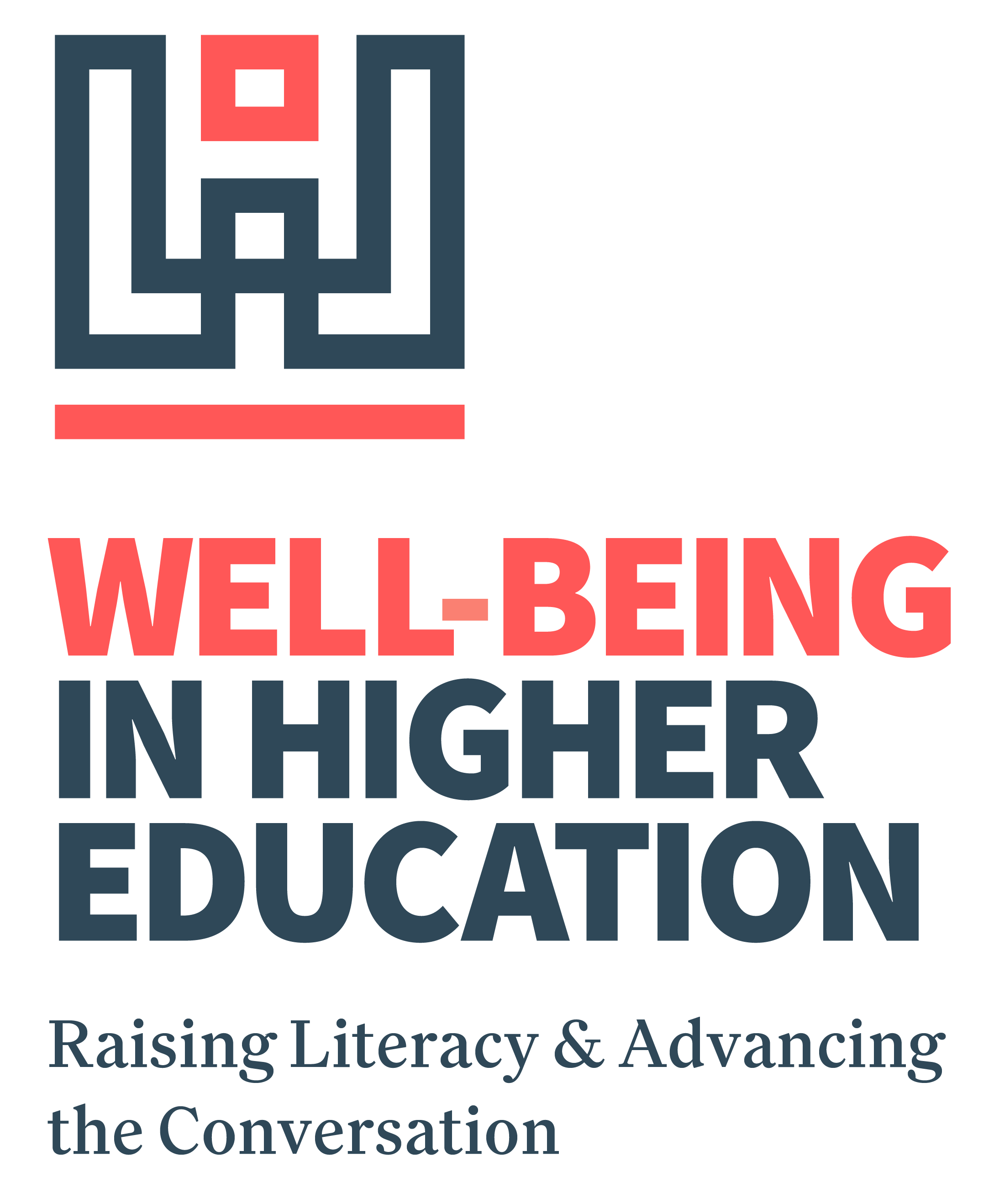 |
Join over 20 higher education associations as we come together in dialogue around well-being. This buzzword is seemingly everywhere, but what does it really mean? Why does it matter? How can we each contribute to this critical work?
Well-being in Higher Education: Raising Literacy and Advancing the Conversation is a collaborative effort between 20+ higher education associations with the goal of raising the literacy for well-being among participating higher education professionals.
Come together with fellow higher education professionals to collectively engage with well-being content, brainstorm ideas, deepen your cross-campus relationships, and further your holistic understanding of well-being and its connection to student success. Participate in dozens of cross-association webinar opportunities to learn more about well-being and real-world strategies your members can bring to their campuses.
Expected learning outcomes for this event are that after attending, participants will be able to:
-
Articulate why well-being is critical to the mission of higher education
-
Discuss how each campus position is inherently a part of well-being work
-
Describe the aspects of well-being and differentiate between wellness and well-being
-
Identify opportunities for collaboration to increase campus well-being
Participating Associations
Inter-association Well-being Definition
The Inter-association Well-being Definition is one outcome of the “Health and Well‑being in Higher Education: A Commitment to Student Success.” In our pursuit to co-create cultures of integrated well-being on campuses worldwide, we want to ensure we are building from a shared understanding and foundation. Since there was not an existing definition that defined well-being, especially as it applies to higher education, the members of our organizations asked that one be created.
Inter-association Well-being Definition
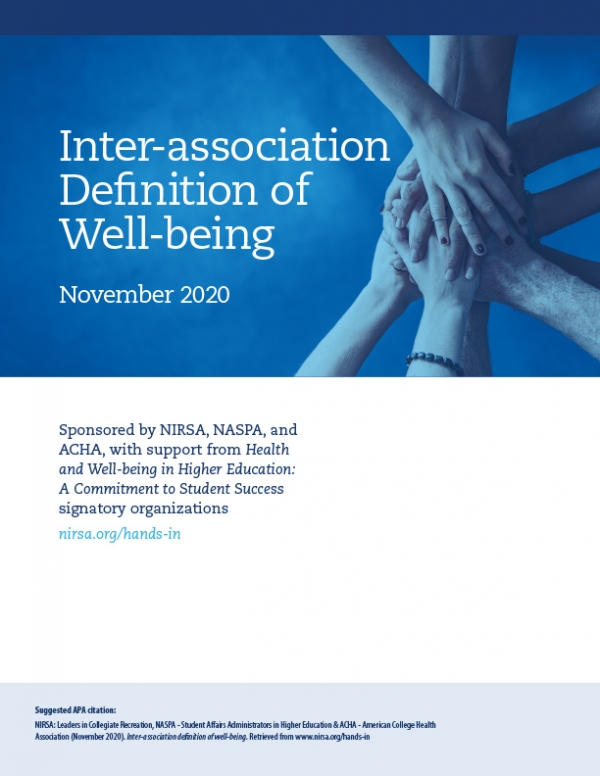 |
This definition, and its supplementary material, is meant to be foundational; we hope a shared understanding can be a stepping stone to systemic change. This document is, of course, not exhaustive. Thank you to the many members who lent their expertise to the collaborative and review of this definition, including:
- Attendees of the first and second research summits hosted by NIRSA, NASPA, and ACHA
- The working group who continued this conversation after the second research summit and led the drafting and review process:
- Gina Abrams, Director of Research and Program Evaluation/Associate Professor, International Institute for Restorative Practices
- Stacy Andes, Director of Health Promotion, Villanova University
- Nicole Brocato, Director of the Wellbeing Assessment Study, Wake Forest University
- Stacy Connell, SLC Wellbeing, LLC
- All the boards, wellbeing-focused work groups and task forces, and others from the signatory associations who contributed to the feedback and review process
- All who attended feedback sessions at conferences and events, providing insight, questions, and ideas
More Resources:
